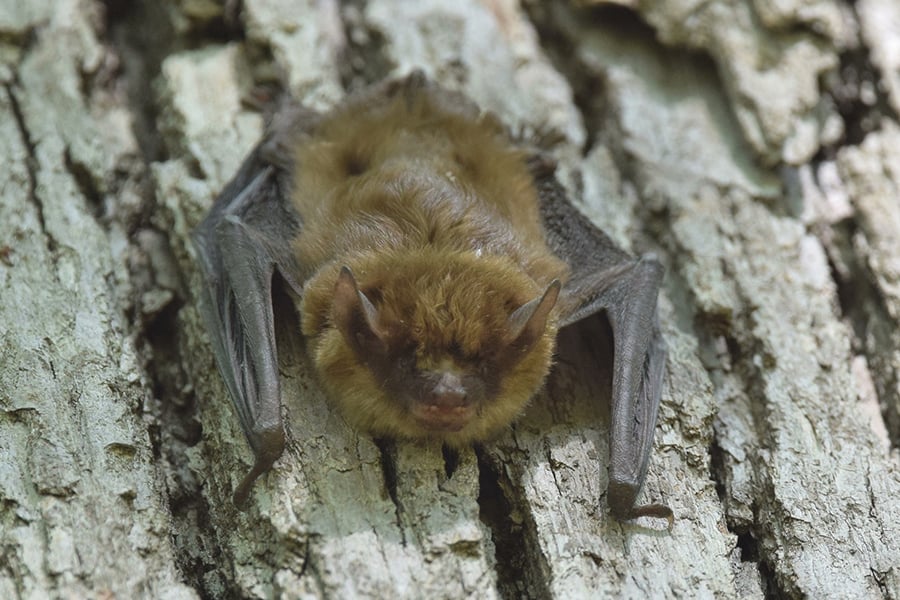
Rabid bat found in Glencoe; IDPH shares safety tips
A bat caught inside a Glencoe home in September was rabid, according to the Village of Glencoe.
The Illinois State Public Health Laboratory reportedly tested the bat after it was found on Sept. 7 in a residence in the 800 block of Grove Street. The test reportedly came back positive for rabies.
The Village urged anyone who finds a bat in their home, on the ground or dead to call Glencoe Public Safety at (847) 835-4112.
The IDPH reports that, locally, bats are the most common animal to be infected with rabies; though, other wildlife, such as raccoons, skunks, foxes and coyotes can also carry the disease. Residents are encouraged to be vigilant to prevent exposure. The last reported human case of rabies in Illinois was in 2021, the last rabid cat reported in Cook County was in 1974 and last rabid dog in the county precedes the IDPH database (1964).
Bats that are active during the day, found on the ground or that cannot fly are “more likely than others to be rapid,” according to the IDPH.
“Rabies is a fatal but preventable disease,” IDPH Director Dr. Sameer Vohra said in a statement in July. “It is important that Illinois residents know how to prevent rabies exposure to protect themselves and their loved ones. Rabies can be prevented in a number of ways including vaccinating pets, being cautious around wildlife, and seeking medical care immediately after a potential exposure. If exposed, please seek medical attention immediately.”
The IDPH reported that, according to its most recent data, 74 rabid bats were found throughout the state this year, including five in suburban Cook County and nine in Lake County.
Officials say that a bat’s teeth are small so a bite may be undetectable and suggest to avoid approaching any bat found in or around a residence.
“Instead, immediately consult with your local animal control or your local health department to determine appropriate next steps,” the IDPH says. “If you have been exposed to rabies, preventive treatment, known as PEP, is necessary. But if the bat or wild animal can be safely captured and tested, and the test comes back negative, no preventive medication is required.”
Officials also urge residents to protect their pets.
“It’s also recommended to take steps to protect your pets against exposure to rabies,” said Dr. Mark Ernst, Illinois state veterinarian, in a statement. “Illinois law requires that all dogs and cats 16 weeks of age and older be vaccinated for rabies and registered with their county. If an animal bites a person or your pet is bitten by another animal, the local animal control must be contacted for quarantine information.”
The Record is a nonprofit, nonpartisan community newsroom that relies on reader support to fuel its independent local journalism.
Subscribe to The Record to fund responsible news coverage for your community.
Already a subscriber? You can make a tax-deductible donation at any time.

Joe Coughlin
Joe Coughlin is a co-founder and the editor in chief of The Record. He leads investigative reporting and reports on anything else needed. Joe has been recognized for his investigative reporting and sports reporting, feature writing and photojournalism. Follow Joe on Twitter @joec2319


